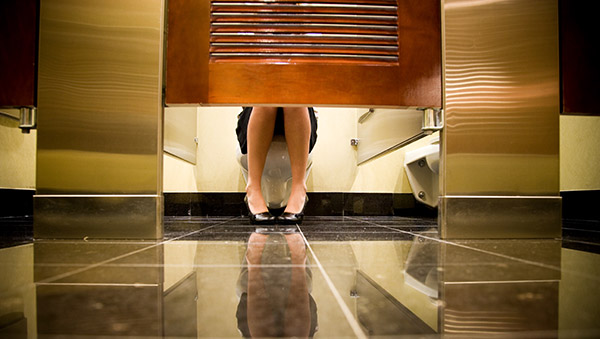Going Too Often? What Frequent Urination Could Be Telling You
October 20, 2025

Gotta go again?
If your trips to the bathroom exceed eight times a day, and you’re not pregnant or taking medications, your frequent urination may be due to a urological condition.
You don’t have to live with it; and you shouldn’t. If a urinary condition is the cause, a urologist can diagnose it and suggest treatment pathways, both non-invasive and lifestyle-based.
How Your Urinary System Works
When you drink something, it runs through a system of body parts that make up your urinary tract. Here’s how they work:
It starts with the kidneys, the two organs that filter waste from your bloodstream and flush it out in liquid.
Next, the ureters, the tubes that carry the urine out of your kidneys.
On to the bladder, where urine is stored until it’s full (two cups for two to five hours, on average).
Finally, the urethra, which moves the urine out of your body from your bladder.
During this process, a couple of other body parts can make you urinate frequently. They are:
Male prostate gland, because of its location surrounding the bladder neck and urethra.
Pelvic floor muscles, because they support your bladder and other organs and keep them in place.
Five Possible Causes for Frequent Urination
Overactive bladder (OAB) – Sometimes irritation or incorrect signals from the nerves that control the bladder (sacral nerves) can force its muscles to squeeze out urine involuntarily, leading to frequent, urgent trips.
Urinary tract infection (UTI) – One of the most common infections, UTIs develop when bacteria enters the urinary tract through the urethra and then grow in the bladder, resulting in a burning, painful infection. Nearly half of women and 3% of men experience UTIs.
Interstitial cystitis (IC) – A chronic condition marked by mild to severe pain, IC indicates something is irritating the bladder tissue and protective lining. It is not an infection, and the cause is unknown, but some researchers theorize the body’s immune system attacks the bladder. Symptoms are similar to those of a UTI.
Benign prostatic hyperplasia (BPH) – This noncancerous growth of the prostate tissue typically begins when men enter their 40s and 50s. In time, the growth can compress the urethra, causing slow, weak urine streams and urine retention that triggers frequent bladder contractions. (Download our booklet here.)
Pelvic floor weakness/prolapse – The pelvic floor muscles, stretching from your tailbone to your pubic bone, hold your bladder and other organs in place. If these muscles weaken, the bladder can slip and become squeezed. Bladder prolapse can result from pregnancy, obesity, and advanced age.
Talk to Your Doctor About Frequent Urination
Before visiting MidLantic Urology get prepared with the details of your medications, urination frequency, your urine’s color (pale or light), and what liquids you drink.
In addition to an exam, the urologist might test bladder strength, nerve activity, and look inside you for abnormalities (possibly using a slender, camera-equipped scope).
Possible treatments, based on the cause, include:
OAB treatments – Oral and injectable (Botox) drug therapies relax the bladder muscle, while the gel Bulkamid can add volume to the urethra when injected. A drug-free approach involves tiny implants that can control misfired signals from your nerves to your bladder.
UTI treatments – Most often, antibiotics will clear up the infection. Cranberry supplements can further help by lowering your urine’s pH (acid) levels, and topical estrogen can protect your vaginal walls. Ask your doctor.
For IC treatments– Typically, multiple therapies are combined to battle the range of causes. These can involve biofeedback that guides you to relax the pelvic muscles, and drugs to manage pain and frequent urination (Including “bladder cocktails” dripped through a catheter). The doctor also might suggest stretching the bladder with liquid (bladder hydrodistention).
For BPH treatments – In some cases, medication will resolve frequent urination by relaxing urinary muscles or shrinking prostate tissue. Minimally invasive options include prostate artery embolization, removing the tissue with water vapor, or actually moving (not removing) the tissue with tiny implants (UroLift). Surgically, the tissue can be removed using lasers, waterjets, or surgical equipment.
Prolapse treatments – Minimally invasive options include estrogen replacement therapy to strengthen the vaginal muscles, and pessaries – small removable devices that can hold the bladder in place when inserted into the upper vagina. Surgically, your doctor can rebuild your pelvic floor using your own tissue or mesh.
What You Can Do at Home
While medical care is important to treat potentially serious frequent urination issues, you can assist in recovery by practicing these healthy habits.
- Work those pelvic muscles. Perform squeeze-and-release exercises, called Kegels, to gradually strengthen the pelvic floor (pretend you’re holding in urine). These are important for women and men.
- Time your bathroom breaks (OAB). Train your bladder to hold it in by scheduling bathroom trips in intervals (tip: relax your body and breathing when the urge hits).
- Adjust your water-to-diuretic ratio. If much of your daily liquid includes caffeine and alcohol, cut back and add water. Caffeine and alcohol increase urination (diuretics).
- Lose a little weight, if necessary. Talk to your doctor about a healthy weight. Excess pounds in your middle can stress your bladder and pelvic muscles and make it harder to hold in urine.
- Reconsider pre-packaged bites. Chips, frozen meals, and other ultra-processed foods tend to be high in artificial additives, salts, and fats, and research links them to OAB.
If you gotta go again, and again, and again, ask about the best approach to control it. Frequent urination is common, and our doctors care for patients with it every day.
The care team at MidLantic Urology treats a range of urinary issues that you can learn more about. Would you like to see a doctor? We’re accepting appointments at locations throughout Philadelphia and surrounding counties.

